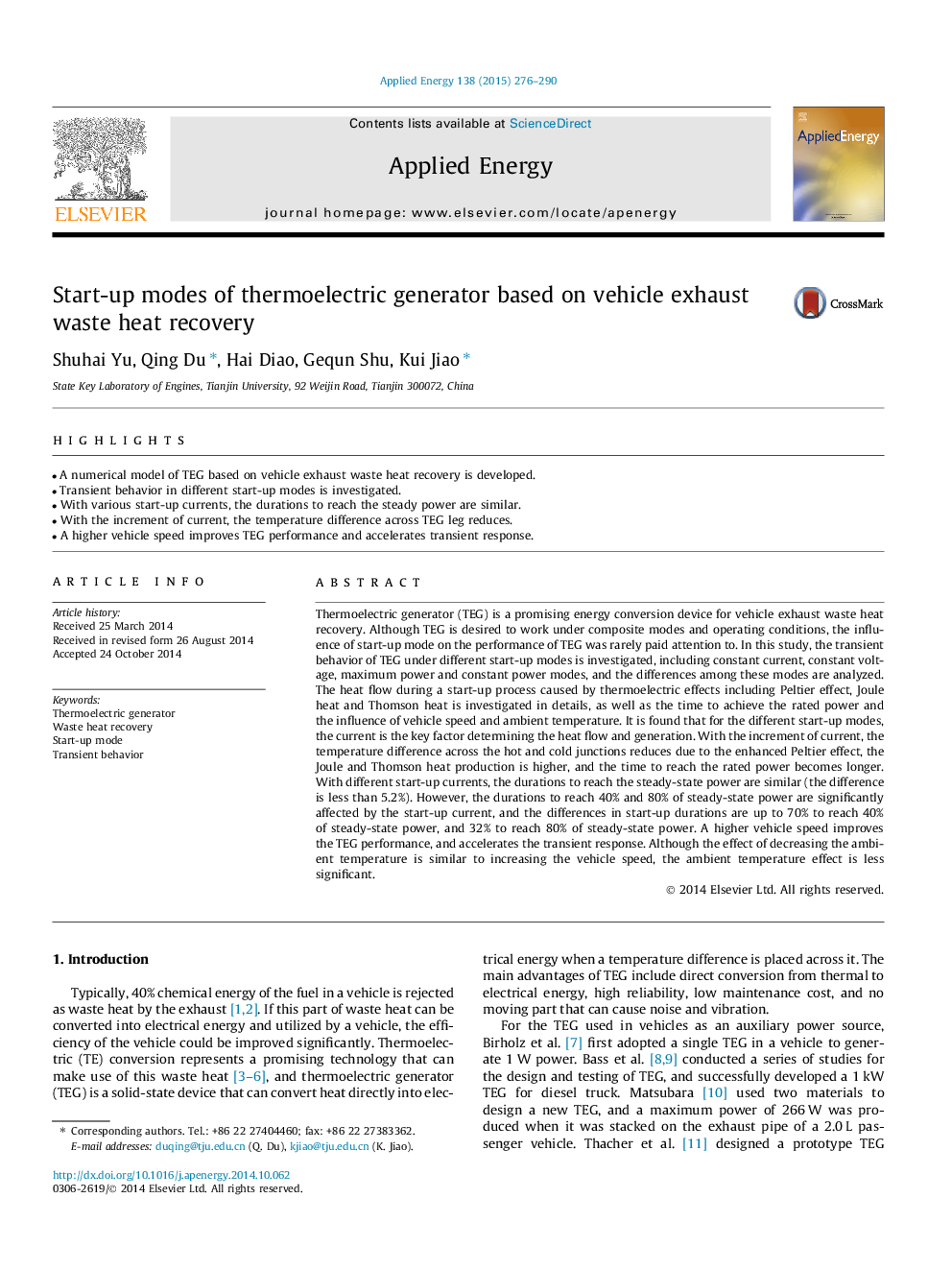| کد مقاله | کد نشریه | سال انتشار | مقاله انگلیسی | نسخه تمام متن |
|---|---|---|---|---|
| 6688238 | 501886 | 2015 | 15 صفحه PDF | دانلود رایگان |
عنوان انگلیسی مقاله ISI
Start-up modes of thermoelectric generator based on vehicle exhaust waste heat recovery
ترجمه فارسی عنوان
حالت های راه اندازی مولد ترموالکتریک بر مبنای بازیابی حرارت بازیافت اتلاف وسایل نقلیه
دانلود مقاله + سفارش ترجمه
دانلود مقاله ISI انگلیسی
رایگان برای ایرانیان
کلمات کلیدی
ژنراتور ترموالکتریک، بازیابی گرما زباله، حالت راه اندازی، رفتار گذرا،
موضوعات مرتبط
مهندسی و علوم پایه
مهندسی انرژی
مهندسی انرژی و فناوری های برق
چکیده انگلیسی
Thermoelectric generator (TEG) is a promising energy conversion device for vehicle exhaust waste heat recovery. Although TEG is desired to work under composite modes and operating conditions, the influence of start-up mode on the performance of TEG was rarely paid attention to. In this study, the transient behavior of TEG under different start-up modes is investigated, including constant current, constant voltage, maximum power and constant power modes, and the differences among these modes are analyzed. The heat flow during a start-up process caused by thermoelectric effects including Peltier effect, Joule heat and Thomson heat is investigated in details, as well as the time to achieve the rated power and the influence of vehicle speed and ambient temperature. It is found that for the different start-up modes, the current is the key factor determining the heat flow and generation. With the increment of current, the temperature difference across the hot and cold junctions reduces due to the enhanced Peltier effect, the Joule and Thomson heat production is higher, and the time to reach the rated power becomes longer. With different start-up currents, the durations to reach the steady-state power are similar (the difference is less than 5.2%). However, the durations to reach 40% and 80% of steady-state power are significantly affected by the start-up current, and the differences in start-up durations are up to 70% to reach 40% of steady-state power, and 32% to reach 80% of steady-state power. A higher vehicle speed improves the TEG performance, and accelerates the transient response. Although the effect of decreasing the ambient temperature is similar to increasing the vehicle speed, the ambient temperature effect is less significant.
ناشر
Database: Elsevier - ScienceDirect (ساینس دایرکت)
Journal: Applied Energy - Volume 138, 15 January 2015, Pages 276-290
Journal: Applied Energy - Volume 138, 15 January 2015, Pages 276-290
نویسندگان
Shuhai Yu, Qing Du, Hai Diao, Gequn Shu, Kui Jiao,
